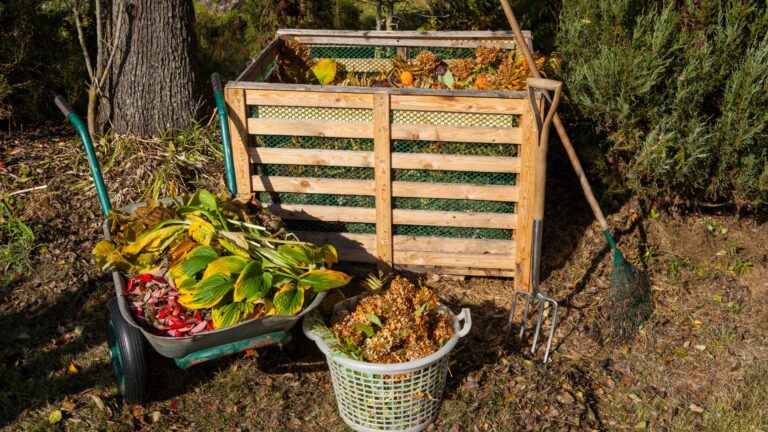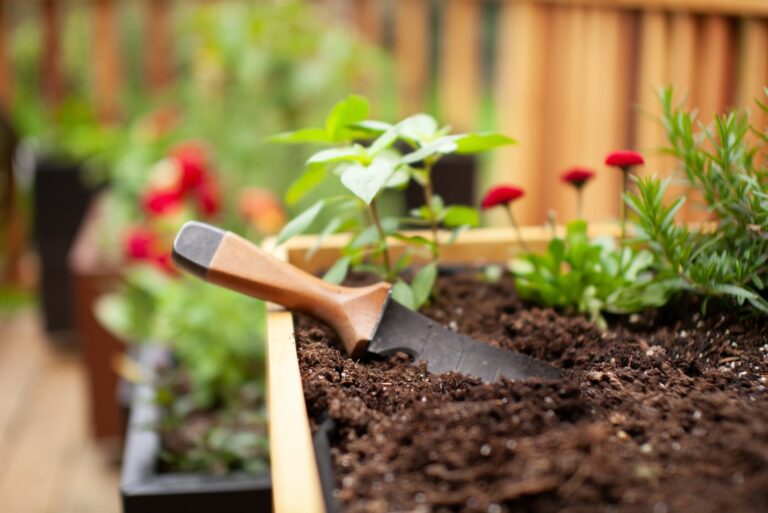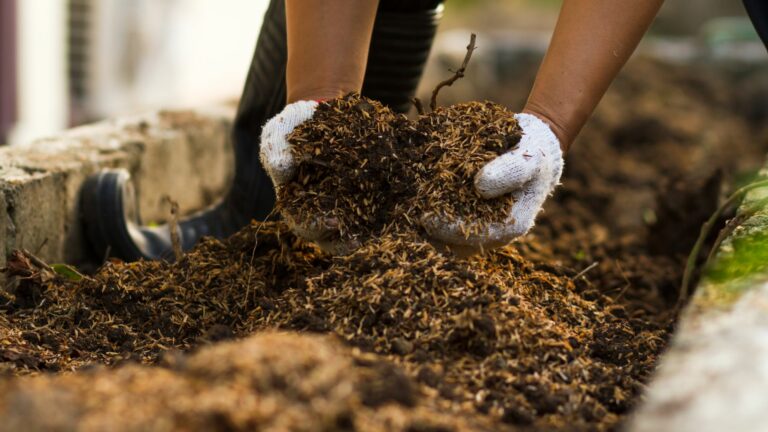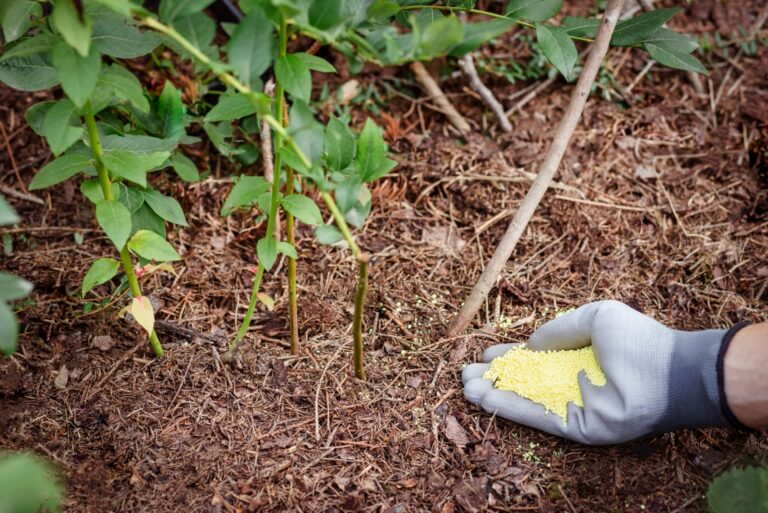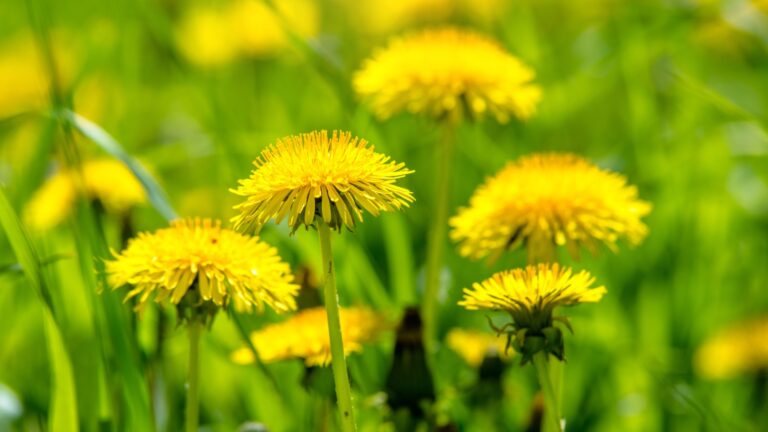Reasons To Mulch Your Garden Every Year In New Hampshire
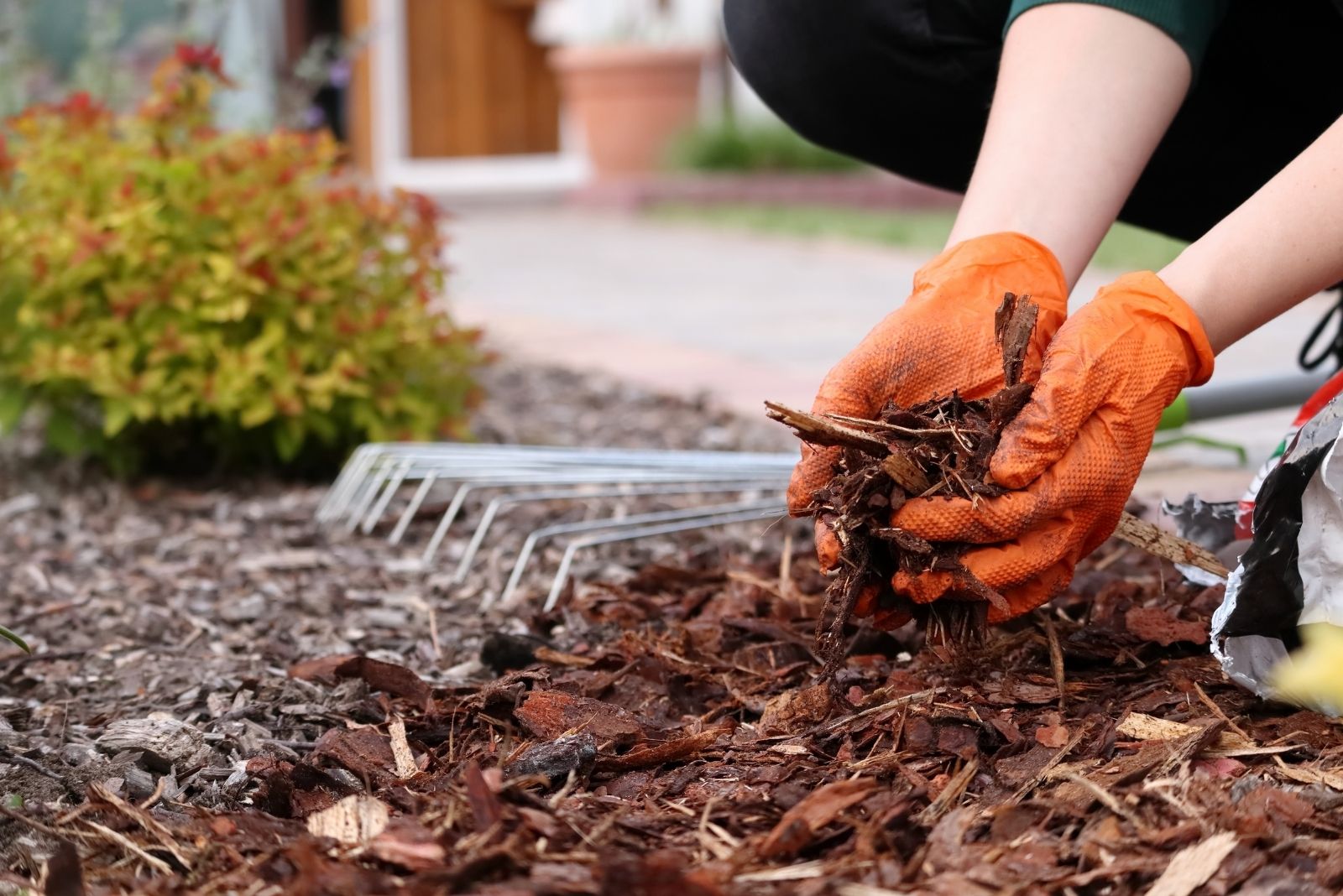
Gardening in New Hampshire isn’t always easy, thanks to our tough winters, short growing season, and unpredictable soil. These conditions can test even the most dedicated gardener. But there’s one simple trick that makes a big impact.
Mulching is a game-changer for Granite State gardens, though it’s often underestimated. A yearly layer of mulch helps regulate soil temperature, retain moisture, and suppress weeds.
It’s low effort with high reward. Whether you’re growing veggies or perennials, mulch gives your plants a better shot at thriving. It also cuts down on maintenance, saving you time and energy. A little mulch goes a long way.
1. Shields Plants From Extreme Temperature Swings
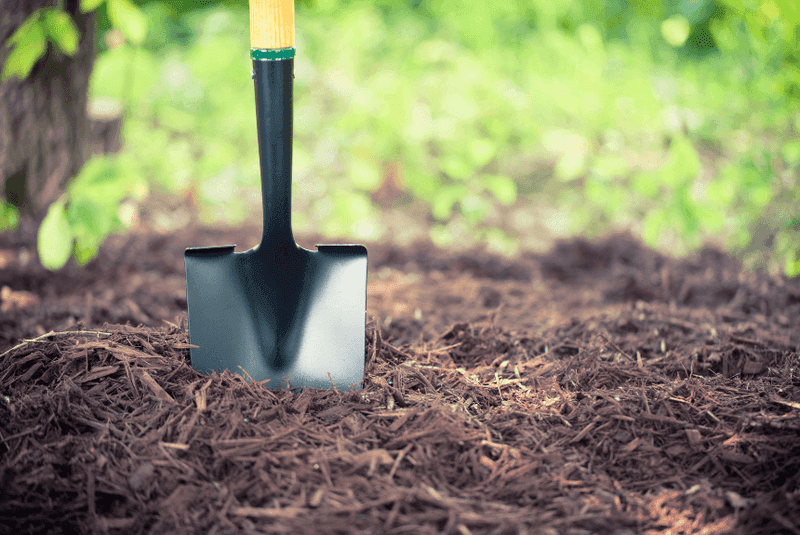
New Hampshire’s climate can go from freezing to sweltering in what feels like the blink of an eye. A good layer of mulch acts like a cozy blanket for your soil.
During winter, it insulates plant roots from killing frosts and prevents heaving—that destructive cycle of freezing and thawing that can push perennials right out of the ground. In summer, it keeps soil temperatures cooler and more consistent.
I’ve saved countless hostas and astilbes in my Concord garden simply by maintaining a 3-inch mulch layer year-round. The temperature moderation effect is especially critical for shallow-rooted plants like blueberries.
2. Conserves Precious Soil Moisture
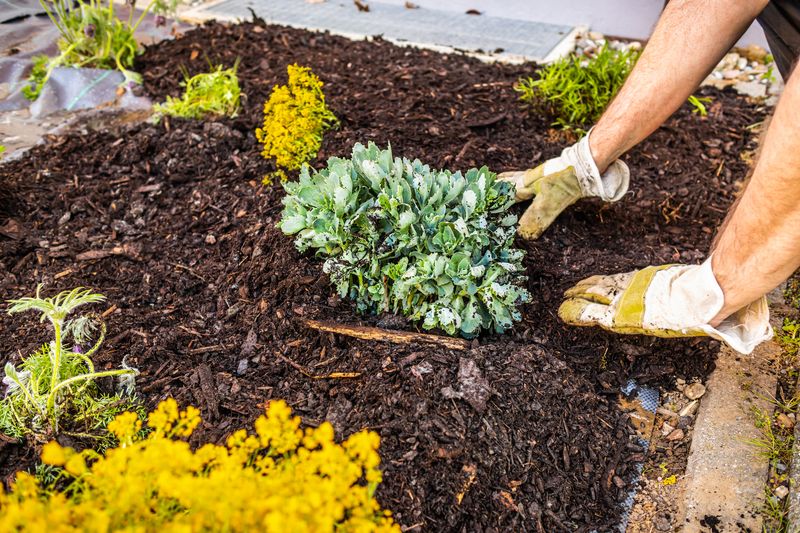
Water conservation becomes crucial during those dry July and August stretches we often experience here. Mulch dramatically reduces evaporation by creating a barrier between soil and air.
Gardens with proper mulching typically require 50% less watering than unmulched beds. The moisture-retention properties are particularly beneficial for vegetable gardens and newly planted trees.
My neighbor and I planted similar maple saplings last year, but only mine received mulch. During last summer’s three-week dry spell, she watered daily while I barely needed to supplement rainfall at all.
3. Suppresses Persistent Weed Growth
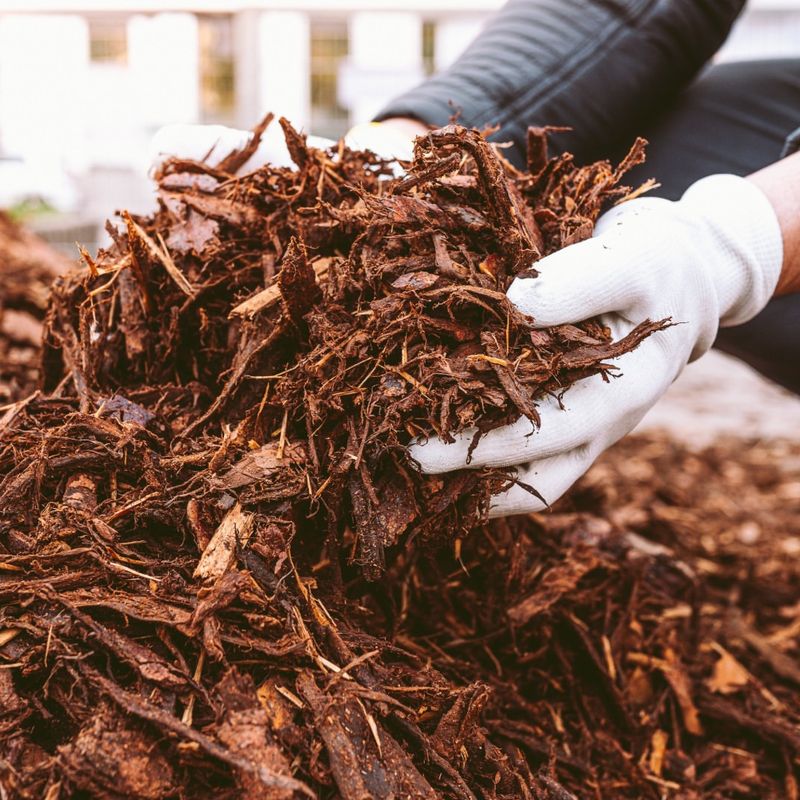
Anyone who gardens in New Hampshire knows our weeds grow with remarkable determination. A thick layer of mulch blocks sunlight from reaching weed seeds, preventing germination of many common troublemakers.
For established beds, applying 2-3 inches of fresh mulch each spring dramatically reduces the hours spent pulling weeds. Pine bark mulch works particularly well against chickweed and purslane, two common New Hampshire garden invaders.
The time savings is significant—I’ve cut my weeding time by nearly 70% since implementing annual mulching in my perennial beds. This means more time enjoying my garden rather than battling unwanted plants.
4. Enriches Soil As It Breaks Down
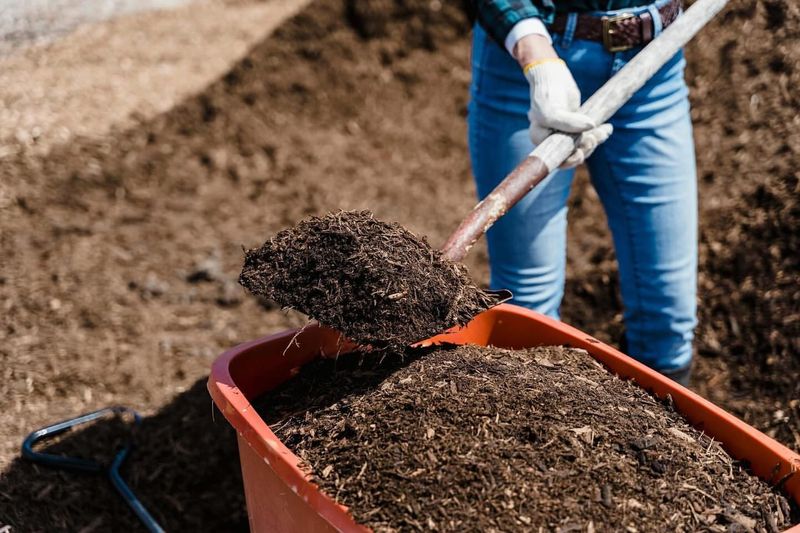
Organic mulches like leaf mold, composted pine bark, and straw gradually decompose, adding valuable nutrients and organic matter to New Hampshire’s often rocky, thin soils.
This slow-release feeding system improves soil structure, enhances drainage in our clay-heavy areas, and supports beneficial soil microorganisms. The result is healthier plants with stronger root systems.
After five years of mulching with composted leaves around my blueberry bushes, the previously poor soil has transformed into rich, crumbly loam. The plants now produce nearly twice the berries with noticeably improved flavor.
5. Protects Against Erosion During Heavy Rains
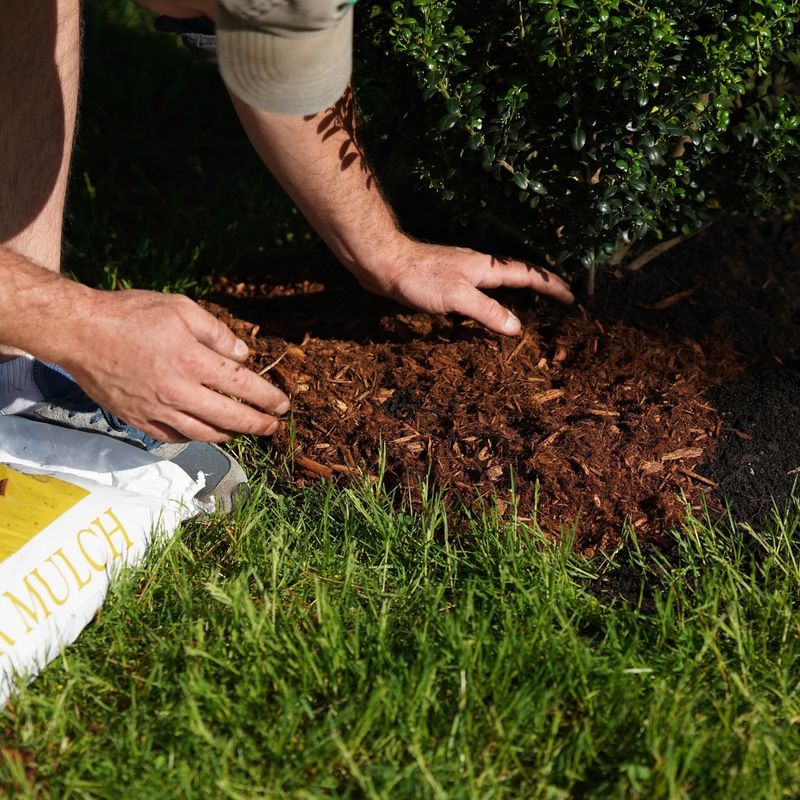
New Hampshire’s increasingly intense summer thunderstorms and spring downpours can wash away precious topsoil, especially on sloped properties or newly established gardens.
Mulch absorbs the impact of raindrops and slows water runoff, allowing moisture to penetrate soil gradually instead of flowing across the surface. This protection is particularly important for hillside plantings and rain gardens.
When the remnants of Hurricane Ida dumped nearly 5 inches of rain on my Portsmouth garden in a single day, my mulched beds remained intact while my neighbor’s unmulched vegetable garden suffered significant soil loss.
6. Creates Habitat For Beneficial Garden Creatures
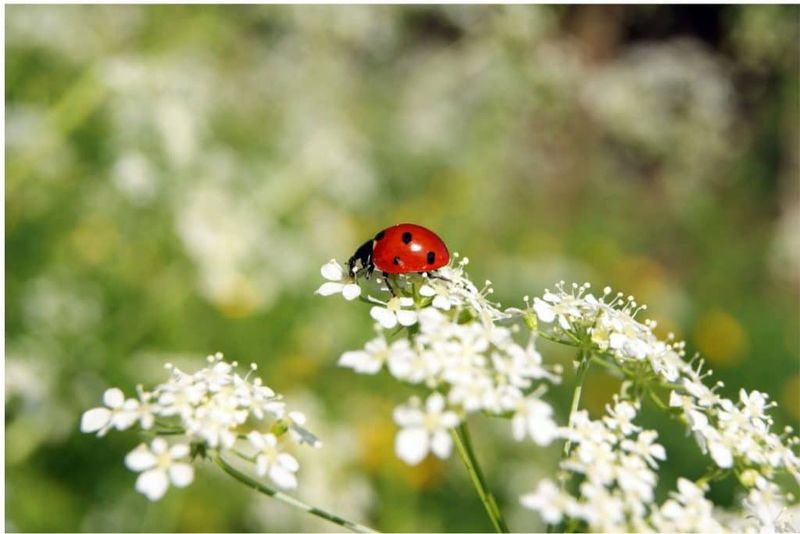
The space between mulch particles provides perfect shelter for ground beetles, spiders, and other beneficial insects that prey on garden pests. These natural allies help control aphids, cutworms, and other problems.
Many native pollinators, including certain bee species, appreciate the protected environment mulch creates. Even toads, valuable slug controllers, find mulched areas ideal for hunting and hiding.
Since adding cocoa hull mulch around my perennial beds in Exeter, I’ve noticed a marked increase in ground beetles and a corresponding decrease in cutworm damage to my vegetables. The interconnected ecosystem benefits all my plants.
7. Extends Growing Season For Vegetables
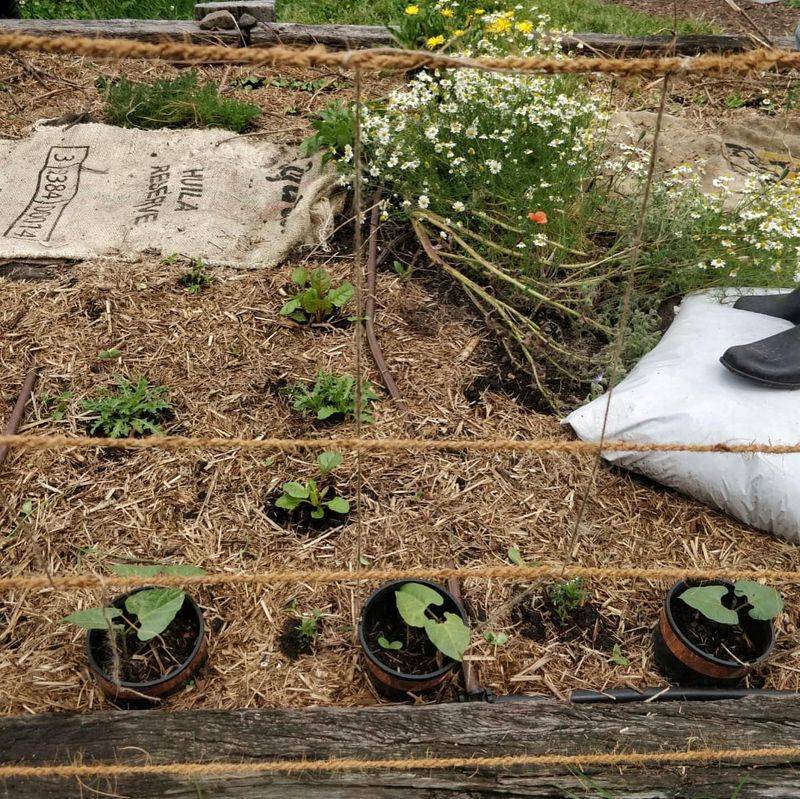
Our relatively short growing season in New Hampshire means maximizing every frost-free day. Dark-colored mulches like black compost or cocoa hulls warm soil faster in spring, allowing earlier planting of cold-sensitive crops.
In fall, a fresh layer of straw or shredded leaves helps retain summer’s warmth longer, often providing an extra week or two of growing time before frost damages plants. This extension is particularly valuable for tomatoes and peppers.
Last year, I mulched half my tomato bed with black compost and left the other half unmulched. The mulched section produced ripe fruit nearly two weeks earlier and continued producing almost ten days longer in the fall.
8. Prevents Soil Splashing Onto Plants
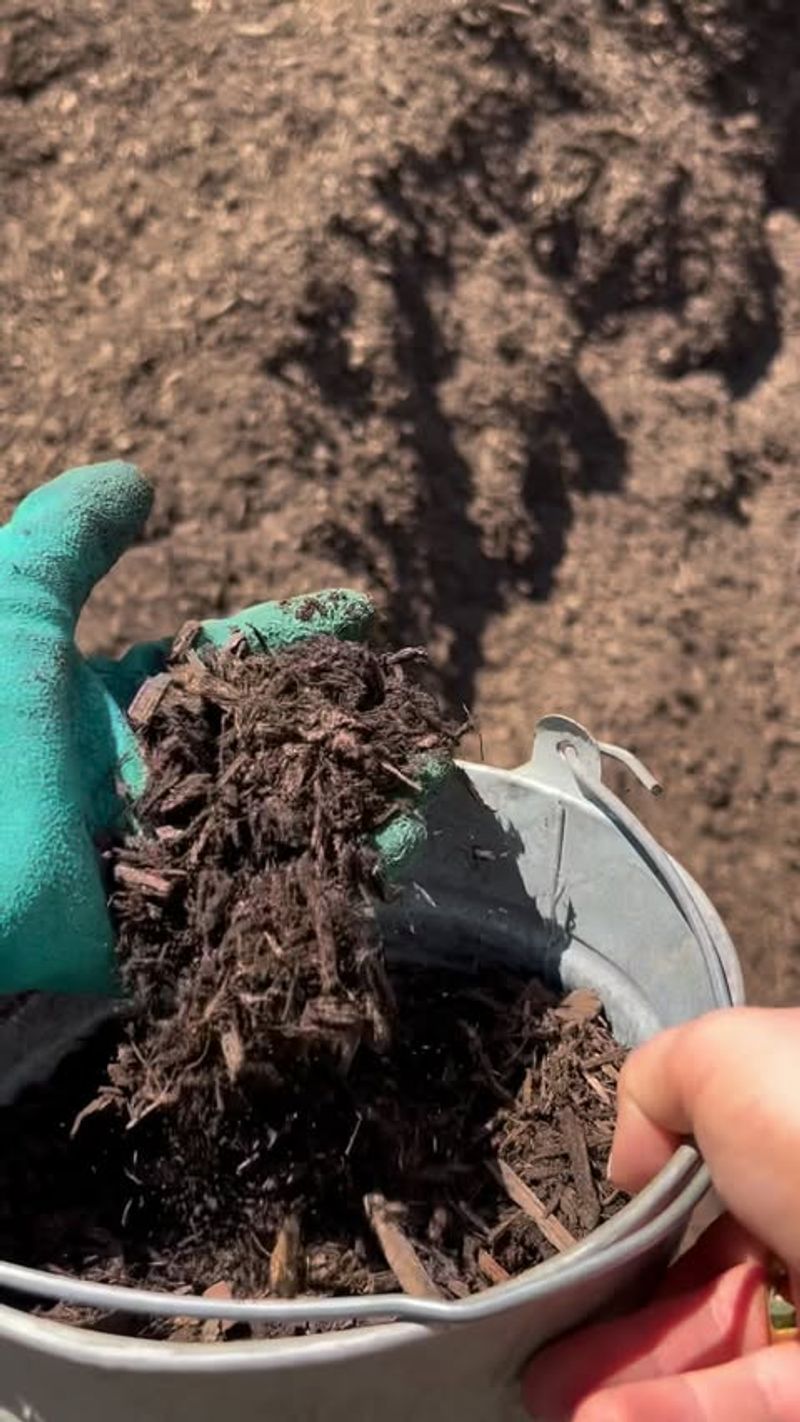
Many plant diseases in New Hampshire gardens spread when rain or irrigation splashes soil onto lower leaves. Fungal problems like early blight on tomatoes and black spot on roses often begin this way.
A proper mulch layer creates a clean barrier between soil and foliage, dramatically reducing disease pressure. This protection is especially important during our humid summer months when fungal issues thrive.
In my Dover community garden plot, where late blight is common, my mulched tomatoes have remained disease-free while neighboring unmulched plants succumbed by mid-August. The simple barrier effect makes a remarkable difference.
9. Reduces Winter Salt Damage To Plants
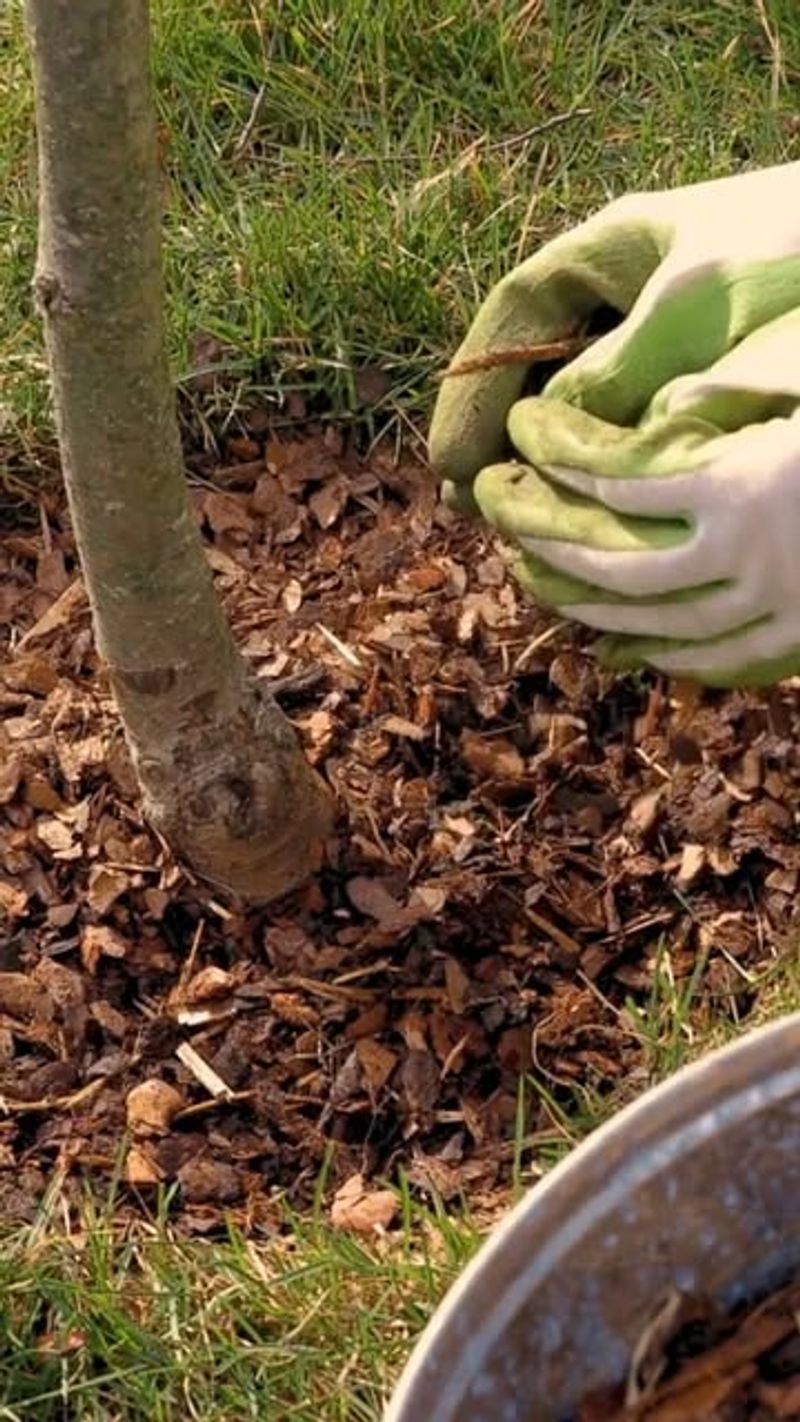
Road salt is a necessary evil during New Hampshire winters, but it can severely damage plants near driveways and roads. Salt-laden snowmelt infiltrates soil, burning roots and disrupting nutrient uptake.
A thick fall application of mulch creates a protective buffer zone, absorbing much of the salt before it reaches sensitive root systems. Evergreens and shallow-rooted shrubs benefit tremendously from this protection.
The rhododendrons along my driveway struggled with winter salt damage until I began applying 4 inches of pine bark mulch each fall. Now they emerge each spring with healthy foliage instead of brown, crispy leaf edges.

